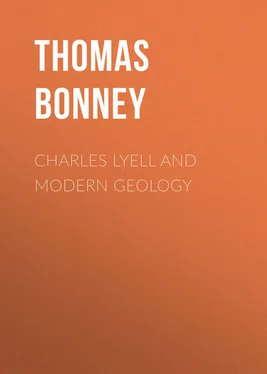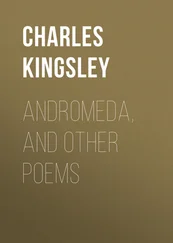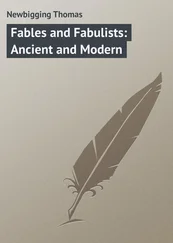Thomas Bonney - Charles Lyell and Modern Geology
Здесь есть возможность читать онлайн «Thomas Bonney - Charles Lyell and Modern Geology» — ознакомительный отрывок электронной книги совершенно бесплатно, а после прочтения отрывка купить полную версию. В некоторых случаях можно слушать аудио, скачать через торрент в формате fb2 и присутствует краткое содержание. ISBN: , Жанр: foreign_antique, foreign_prose, на английском языке. Описание произведения, (предисловие) а так же отзывы посетителей доступны на портале библиотеки ЛибКат.
- Название:Charles Lyell and Modern Geology
- Автор:
- Жанр:
- Год:неизвестен
- ISBN:http://www.gutenberg.org/ebooks/34502
- Рейтинг книги:5 / 5. Голосов: 1
-
Избранное:Добавить в избранное
- Отзывы:
-
Ваша оценка:
- 100
- 1
- 2
- 3
- 4
- 5
Charles Lyell and Modern Geology: краткое содержание, описание и аннотация
Предлагаем к чтению аннотацию, описание, краткое содержание или предисловие (зависит от того, что написал сам автор книги «Charles Lyell and Modern Geology»). Если вы не нашли необходимую информацию о книге — напишите в комментариях, мы постараемся отыскать её.
Charles Lyell and Modern Geology — читать онлайн ознакомительный отрывок
Ниже представлен текст книги, разбитый по страницам. Система сохранения места последней прочитанной страницы, позволяет с удобством читать онлайн бесплатно книгу «Charles Lyell and Modern Geology», без необходимости каждый раз заново искать на чём Вы остановились. Поставьте закладку, и сможете в любой момент перейти на страницу, на которой закончили чтение.
Интервал:
Закладка:
The educational system of the school stimulated his ambition to rise in the classes. "By this feeling," he says, "much of my natural antipathy to work, and extreme absence of mind, was conquered in a great measure, and I acquired habits of attention which, however, were very painful to me, and only sustained when I had an object in view." There was an annual speech-day, and Charles, on the first occasion, obtained a prize for his performance. "Every year afterwards," he continues, "I received invariably a prize for speaking, until high enough to carry off the prizes for Latin and English original composition. My inventive talents were not quick, but to have any is so rare a qualification that it is sure to obtain a boy at our great schools (and afterwards as an author) some distinction." Evidently he gave proofs of originality beyond his fellows; since he won a prize for English verse, though he had written in the metre of the "Lady of the Lake" instead of the ordinary ten-syllabic rhyme. On another occasion he commemorated, in his weekly Latin copy, the destruction of the rats in a neighbouring pond, writing in mock heroics, after the style of Homer's battle of the frogs and mice.
The school, like all other collections of boys, had its epidemic hobbies. The game of draughts, coupled unfortunately with gambling on a small scale, was followed by chess, and that by music. To each of these Charles was more or less a victim, and his progress up the school was not thereby accelerated. Birds'-nesting also had a turn in its season. His love for natural history made him so keen in this pursuit that he became an expert climber of trees. But his schooldays on the whole were uneventful, and he went to Oxford at a rather early age, his brother Tom having already left Midhurst in order to enter the Navy.
CHAPTER II.
UNDERGRADUATE DAYS
Lyell matriculated at Exeter College, and appears to have begun residence in January, 1816 – that is, soon after completing his eighteenth year. At Oxford, though not a "hard reader," he was evidently far from idle, and wrote for some of the University prizes, though without success. Several of his letters to his father have been preserved. In these he talks about his studies, mathematical and classical; criticises Coleridge's "Christabel," and praises Kirke White's poetry; describes the fritillaries blossoming in the Christchurch meadows, and refers occasionally to political matters. The letters are well expressed, and indicate a thoughtful and observant mind. While yet a schoolboy he had stumbled upon a copy of Bakewell's "Geology" in his father's library, which had so far awakened his interest that in the earlier part of his residence at Oxford he attended a course of Professor Buckland's lectures, and took careful notes. The new study is briefly mentioned in a letter, dated July 20th, 1817. This is written from Yarmouth, where he is visiting Mr. Dawson Turner, the well-known antiquarian and botanist. He states that, on his way through London, he went to see the elephant at Exeter Change, Bullock's Museum, and Francillon's collection of insects. At Norwich also he saw more insects, the cathedral, and some chalk pits, in which he found an "immense number of belemnites, echinites, and bivalves." He was also greatly interested by the fossils in Dr. Arnold's collection at Yarmouth, particularly by the "alcyonia" found in flints. 4 4 Probably they were fossil sponges.
A few days later he again dwells on geology, and speculates shrewdly on the formation of the lowland around Yarmouth and the ancient course of the river. In one paragraph a germ of the future "Principles" may be detected. It runs thus:
"Dr. Arnold and I examined yesterday the pit which is dug out for the foundation of the Nelson monument, and found that the first bed of shingle is eight feet down. Now this was the last stratum brought by the sea; all since was driven up by wind and kept there by the 'Rest-harrow' and other plants. It is mere sand. Therefore, thirty-five years ago the Deens were nearly as low as the last stratum left by the sea; and as the wind would naturally have begun adding from the very first, it is clear that within fifty years the sea flowed over that part. This, even Mr. T. allows, is a strong argument in favour of the recency of the changes. Dr. Arnold surprised me by telling me that he thought that the Straits of Dover were formerly joined, and that the great current and tides of the North Sea being held back, the sea flowed higher over these parts than now. If he had thought a little more he would have found no necessity for all this, for all those towns on this eastern coast, which have no river god to stand their friend, have necessarily been losing in the same proportion as Yarmouth gains – viz. Cromer, Pakefield, Dunwich, Aldborough, etc., etc. With Dunwich I believe it is Fuit Ilium ." 5 5 Life, Letters, and Journals, vol. i. p. 43.
Evidently Lyell by this time had become deeply interested in geology, for his journal contains several notes made on the road from London to Kinnordy, and records, during his stay there, not only the capture of insects, but also visits to quarries, and the discovery of crystallised sulphate of barytes at Kirriemuir and elsewhere.
Towards the end of his first long vacation he travelled, in company with two friends of his own age, from Forfarshire across by Loch Tay, Tyndrum, and Loch Awe, to the western coast at Oban, whence they visited Staffa and Iona. With the caves in the former island he was greatly impressed; and he noted the columns of basalt, which, he said, were "pentagonal" in form, quite different from the "four-square" jointing of the red granite at the south-west end of Mull. With the ruins of Iona he was a little disappointed, for he wrote in his diary that "they are but poor after all." The wonders of Fingal's Cave appealed to his poetical as well as to his geological instincts, for in October, after his return to Oxford, he sent to his father some stanzas on this subject which are not without a certain merit. But the covering letter was mostly devoted to geology.
The next year, 1818, marked an important step in his education as a geologist, for he accompanied his father, mother, and two eldest sisters on a Continental tour. Starting early in June, they drove in a ramshackle carriage, which frequently broke down, from Calais to Paris, along much the same route as the railway now takes; they visited the sights of the capital, not forgetting either the artistic treasures of the Louvre or the collections of the Jardin des Plantes, particularly the fossils of the "Paris basin." Thence they journeyed by Fontainebleau and Auxerre to Dôle, and he makes careful and shrewd notes on the geology, for the carriage travelling of those days, though slow, was not without its advantages – and in crossing the Jura he observes the nodular flints in a limestone, and the contrast between these mountains and the Grampians of his native land. As they descended the well-known road which leads down to Gex in Switzerland, they had the good fortune to obtain a splendid view of Mont Blanc and the Alps. From Geneva, where he notes the "most peculiar deep blue colour of the Rhone," they visited Chamouni by the usual route. At this time the principal glaciers were advancing rather rapidly. The Glacier des Bossons, he remarks, "has trodden down the tallest pines with as much ease as an elephant could the herbage of a meadow. Some trunks are still seen projecting from the rock of ice, all the heads being embodied in this mass, which shoots out at the top into tall pyramids and pinnacles of ice, of beautiful shapes and a very pure white… It has been pressed on not only through the forest, but over some cultivated fields, which are utterly lost." 6 6 Life, Letters, and Journals, vol. i. p. 69.
Интервал:
Закладка:
Похожие книги на «Charles Lyell and Modern Geology»
Представляем Вашему вниманию похожие книги на «Charles Lyell and Modern Geology» списком для выбора. Мы отобрали схожую по названию и смыслу литературу в надежде предоставить читателям больше вариантов отыскать новые, интересные, ещё непрочитанные произведения.
Обсуждение, отзывы о книге «Charles Lyell and Modern Geology» и просто собственные мнения читателей. Оставьте ваши комментарии, напишите, что Вы думаете о произведении, его смысле или главных героях. Укажите что конкретно понравилось, а что нет, и почему Вы так считаете.












